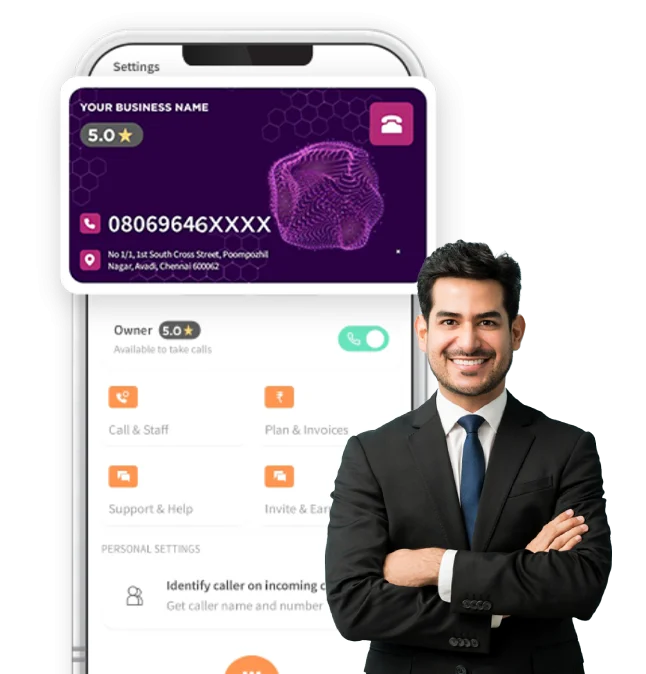
Privacy has become a precious commodity in our digital age, and many people wonder if they can obtain virtual numbers without providing government-issued identification. The short answer is yes, but the reality is more nuanced than a simple yes or no. Understanding the landscape of anonymous virtual number services requires looking at why providers ask for ID, what alternatives exist, and whether these services meet your specific needs.
The demand for anonymous virtual numbers stems from legitimate privacy concerns. People want to protect their personal information when signing up for services, testing apps, or maintaining separation between their digital activities and real-world identity. However, the challenge lies in finding services that balance privacy protection with reliability and functionality.
Why Do Most Services Require ID?
Virtual number providers typically request identification for several practical and legal reasons that go beyond simple bureaucracy. Anti-fraud measures top the list, as virtual numbers can be misused for spam, harassment, or more serious criminal activities. By requiring identity verification, providers can track misuse back to specific users and take appropriate action.
Regulatory compliance also drives ID requirements in many jurisdictions. Telecommunications regulations in various countries mandate that service providers maintain records of their users, especially for services that can be used for international communications. These regulations exist to prevent money laundering, terrorism financing, and other serious crimes that might exploit anonymous communication channels.
Payment processing represents another factor pushing providers toward ID verification. Credit card companies and payment processors often require service providers to verify customer identities to reduce chargeback risks and comply with financial regulations. This creates a practical barrier for providers who might otherwise offer anonymous services.
Platform policies from major tech companies influence ID requirements as well. Many virtual number services depend on integration with messaging platforms, social media sites, and other services that have their own verification requirements. To maintain these partnerships, virtual number providers often implement similar verification standards.
The business model itself sometimes necessitates ID verification. Providers offering premium features, monthly subscriptions, or extensive international coverage need to prevent abuse and ensure payment, which becomes difficult without some form of user identification.
Anonymous Virtual Number Options

Despite these challenges, several categories of services offer varying degrees of anonymity for virtual number access. Temporary number services provide the most anonymous option, offering numbers that work for short periods without requiring extensive personal information. These services typically focus on one-time verification needs rather than ongoing communication.
Cryptocurrency-based services have emerged as another option for privacy-conscious users. These platforms accept anonymous digital currency payments and often require minimal personal information. However, the trade-off usually involves higher costs and sometimes limited features compared to traditional providers.
Prepaid credit systems offer a middle ground between complete anonymity and full verification. Some services allow users to purchase credits through anonymous payment methods, then use those credits to access virtual numbers without providing detailed personal information. The verification burden shifts to the payment method rather than direct ID submission.
Peer-to-peer number sharing represents an emerging model where users can access virtual numbers through community-driven platforms. These services operate more like marketplaces where verified users can share access to their virtual numbers with others, creating a layer of separation between the end user and the service provider.
Task-based earning systems provide another pathway to anonymous virtual number access. Platforms like BODE IM have innovated by allowing users to earn credits through completing simple tasks rather than requiring upfront payments or extensive verification. This approach makes virtual numbers from over 197 countries accessible while maintaining user privacy and reducing barriers to entry.
Evaluating Anonymous Service Quality
Anonymous virtual number services often come with trade-offs that users should understand before committing to them. Reliability typically decreases as anonymity increases, since providers have less incentive to maintain high service standards for users they can't identify or contact effectively.
Limited features represent another common compromise. Anonymous services might not offer advanced features like call forwarding, voicemail transcription, or integration with popular messaging apps. The focus remains on basic functionality rather than comprehensive communication solutions.
Shorter lifespan affects many anonymous virtual numbers. Since these services often target temporary use cases, the numbers might not remain active for extended periods. This limitation makes them unsuitable for long-term communication needs or building lasting digital relationships.
Customer support quality usually suffers in anonymous services. Without user identification, providers struggle to offer personalized support or resolve account-specific issues. Users might find themselves unable to recover access to numbers or resolve technical problems effectively.
Geographic limitations often restrict anonymous services to specific regions or countries. Providers might offer limited international coverage compared to verified services, reducing options for users who need numbers from specific locations.
Legal and Practical Considerations
Using anonymous virtual numbers operates in a legal gray area that varies significantly by jurisdiction and use case. While privacy protection is generally legal, using virtual numbers to circumvent legitimate verification processes or engage in fraudulent activities crosses legal boundaries.
Terms of service violations represent a practical risk when using anonymous numbers with various online platforms. Many social media sites, dating apps, and financial services explicitly prohibit the use of temporary or virtual numbers for account verification. Violating these terms can result in account suspension or permanent bans.

International regulations add complexity for users who need anonymous numbers for cross-border communications. Different countries have varying rules about anonymous telecommunications services, and what's legal in one jurisdiction might violate regulations in another.
The effectiveness of anonymous numbers for long-term privacy protection remains questionable. While these services provide initial anonymity, determined investigators or sophisticated tracking systems might still be able to correlate anonymous number usage with specific individuals through behavioral patterns or associated activities.
Alternatives to Complete Anonymity
Rather than seeking completely anonymous virtual numbers, many users find that services with minimal verification requirements meet their privacy needs while providing better reliability and features. Some providers accept alternative verification methods like secondary email addresses or social media accounts instead of government-issued ID.
Privacy-focused providers offer another middle path. These services might require basic verification but implement strong privacy policies that limit data sharing and retention. Users get the benefits of reliable service while maintaining reasonable privacy protection.
Temporary verification services provide anonymity for specific use cases without requiring long-term anonymous communication capabilities. These services excel at one-time verification needs while directing users toward more comprehensive solutions for ongoing communication requirements.
Multiple account strategies allow users to compartmentalize their virtual number usage without requiring complete anonymity. By using different virtual numbers for different purposes and maintaining separation between activities, users can achieve practical privacy protection even with verified services.
Making Informed Decisions
Choosing whether to pursue anonymous virtual number services depends on your specific needs, risk tolerance, and privacy requirements. Users seeking temporary verification for low-stakes activities might find anonymous services perfectly adequate, while those needing reliable long-term communication should consider verified alternatives.
Risk assessment becomes crucial when evaluating anonymous services. Consider what happens if the service becomes unavailable, if your number stops working, or if you need customer support. Anonymous services typically offer limited recourse for these situations.
Cost-benefit analysis helps determine whether the privacy benefits of anonymous services justify their limitations. Premium pricing, limited features, and reliability concerns might outweigh privacy advantages for many users.
Legal compliance research is essential before using anonymous virtual numbers for business purposes or regulated activities. Understanding applicable laws and regulations helps avoid unintended violations that could create serious problems.
The virtual number landscape continues evolving as providers seek to balance privacy protection with practical functionality. Innovative approaches like task-based earning systems and minimal verification requirements suggest that the future might offer better options for privacy-conscious users without requiring complete anonymity.
Rather than viewing the choice as all-or-nothing between complete anonymity and full verification, users can explore the spectrum of options that provide appropriate privacy protection while maintaining the reliability and features they need for effective communication.
Understanding these nuances helps users make informed decisions that align with their privacy goals while meeting their practical communication requirements in an increasingly connected digital world.
Explore more about virtual number privacy and accessibility:
Related Articles




